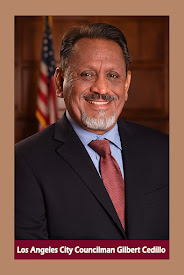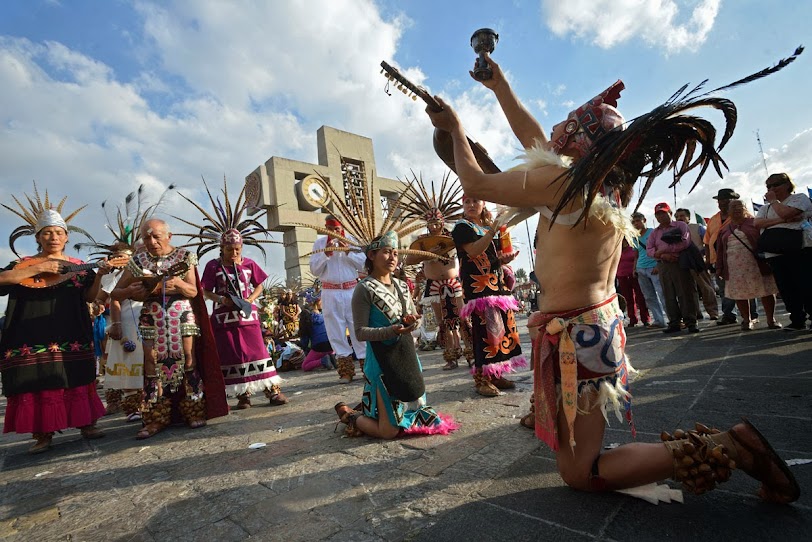MUCHO MUCHO AMOR: THE LEGEND OF WALTER MERCADO Filmmakers Honor Late Astrologer & TV Mega-celebrity
By Alci Rengifo
Late astrologer and iconic TV personality Walter Mercado is the subject of Mucho Mucho Amor a new Netflix documentary.
For the average Latinx millennial Walter Mercado was a constant presence on the living room television. The late Puerto Rican psychic left his mark on ’90s Spanish-language television as a trailblazing cultural figure, known more for his flamboyant charisma than his horoscope readings. Mucho Mucho Amor: The Legend of Walter Mercado, a new documentary on Netflix, charts Mercado’s rise and eventual fall, as well as his emerging place as a Latinx queer icon.
Directors Cristina Costantini and Kareem Tabsch, along with producer Alex Fumero, approached the project as both objective filmmakers and Latinx artists who grew up with Mercado as a constant pop culture presence. The three recently shared about how they came about making a documentary about a man who had been so present in Latin media before suddenly vanishing. “We all grew up watching Walter with our grandparents (laughs). I think he’s just really stuck in our heads,”
said Fumero, “I had sort of always been obsessed with him.”
Mucho Mucho Amor finds the reclusive Mercado in his Puerto Rico home in his late ‘80s, reminiscing about life and how fame came to him. He began life as the son of rural farmers and had an early, natural love for theater and the arts. Once he made his way to the island capital he went from stage to TV as a telenovela actor. But when a producer noticed his charismatic reading of horoscopes he immediately cast Mercado for a 1969 TV show where he would do just that. Thus the psychic persona of Walter Mercado was born, decked in opulent capes and robes, reading the signs with a flashy charisma.
When manager Bill Bakula took Mercado under his wing greater fame would follow as the smooth operator would get Mercado into major global markets. For the U.S. Hispanic community Mercado was a constant fixture on Univision from 1994 to 2009 where his charismatic delivery of horoscopes at the end of “Primer Impacto” helped make the daily news program a ratings juggernaut.
A gender-nonconformist, Mercado gained a massive following while defying the homophobic tendencies so present in Latin American media and culture. Like Liberace, his identity was plain for all to see, yet he dismissed labels. Unfortunately, Mercado’s growing success as a television icon was cut short by a contract he’d naively signed with Bakula, which had stripped him of the literal rights to his own name and likeness.
“When I met Kareem I was in New York and he was visiting and a friend introduced us. Walter was having an estate sale in Miami where he was selling a bunch of stuff from his condominium there,” said Fumero, “including capes and what not. And that was the first thing me and Kareem talked about, how I was jealous I couldn’t go and he was going to go. I said ‘has anyone done a documentary on this guy? You should do one,’ he said, ‘yeah I’m going to go buy a cape but I also have that in mind.’ I said ‘if I can help you in any way I’d be happy to.’” Thus began the collaboration to get Mercado on camera to tell his story.
“Kareem made contact with one of Walter’s nieces and a couple of weeks later he and I set up a call to talk about what our approach would be. Half an hour before that call Cristina calls me and says, ‘Hey I heard from some mutual friends that you’re obsessed with Walter Mercado, I want to make a movie about him.’ And I was like, this is too weird. So we all got on the phone, these two hit it off and the rest is history.”
In the documentary Mercado is like an exuberant force of nature, never losing his positivity and energy. He refuses to acknowledge his age (despite all the vitamins his assistant displays for the camera) and jumps at the chance to make new public appearances once a new generation discovers him via the internet. “It’s the closest thing I’ve ever had to a religious experience,” said Constantini. The title of the documentary is taken from Mercado’s own signature sign-off delivered at the close of his daily segment. “Mucha paz, pero sobre todo mucho mucho amor (lots of peace, but above all much much love).”
“We drove to his home which is in the suburbs of San Juan and you know it’s Walter Mercado’s home from a mile away. It’s like a Moroccan palazzo,” remembered Tabsch. “We came in and met his nieces and his assistant Willy and secretary. We were kept chatting and waiting with the family for maybe 35 minutes, and then all of a sudden we hear this voice go, ‘Kareem! Cristina! Alex!’ And we turn around and there’s Walter, head to toe in white linen with his beautiful feathered hair, basically the most dressed-down we ever saw him… He grabbed each one of our hands and looked each one of us in the eye and told us something about ourselves. He had done his research. We were meeting this icon who we’ve described Mrs. Rogers meets Oprah but dressed as Liberace.”
“Kareem was ‘a monstruo de la cinematografia!” recalled Constantini. This personal touch comes across in the documentary, where Mercado appears to talk to viewers as if they are personal friends. Such a personality also helped make his horoscopes immensely popular. Audiences felt Mercado was talking directly to them on a one-on-one basis, even when he launched an international psychics hotline, claiming to have vetted every psychic, a claim which even the head of Telemundo disputes.
Mercado viewed his audience like a family. Lin-Manuel Miranda appears in the documentary eager to meet Mercado and when he does, tears well in his eyes. “What I miss most are his little expressions. He had all these funny quirks. He would say the word ‘ok’ over and over, which meant he was tired or done with something. It would go ‘okaaay.’ He would tell the same 12 stories. He was like an abuelita. He would tell them over and over again. They were just the quirks of a very kind soul. He really was one of the nicest people we’ve ever met. Being around him was a real joy. We were always laughing. He could tell we liked laughing and would give his best performance for us.”
One of the documentary’s most relevant and striking segments deals with Mercado as a TV personality amid the homophobia of Latinx culture. When comedians would satirize him it was always about mocking his mannerisms, not the psychic angle. On talk shows a host would make a bluntly insulting gay joke. None of it would phase Mercado on air and he could respond with equal sting. “I hope that we see that we had somebody who was showing us who he was from the first moment he came on television. Despite confronting homophobia and all that came with it in a machista, heteronormative, conservative environment he always showed us who was he was. And it inspired millions of young queer people like myself when I first saw him,” said Tabsch.
“Walter was really brilliant in that he came on TV and defied the notions of what makes a man a man and blended genders in a way that was super subversive. He didn’t have to talk about it, he showed it to you every time. Because he was mystical and magical he got this pass because he didn’t put a label on it. He was kind of allowed to be. “That was brilliant from him but it’s really sad that as a culture we couldn’t embrace him for who he was. I hope that today Latinx viewers and everyone really draws inspiration from that and realize we are not supposed to accept people on our terms, but on their terms.”
“We look back at that footage from the ‘90s with horror, at how this was mainstream to treat gay people this way. But there’s still much that’s mainstream like colorism or intercultural division within the Latino community, sexism, stuff that we’re still ok with. And with Walter we need to think about how we can better ourselves as a community,” added Constantini.
Full of a trusting nature, Mercado would fall out of the public view after a contract sneaked his way by Bakula would hand over the rights to his brand name to the manager, who would go on to peddle merchandise for which the psychic would receive nothing. Six years of litigation followed and Mercado would pass away in late 2019, just as he was being rediscovered by a whole new generation finding his old clips and persona online. “Bill has his own side to the story,” said Fumero.
“Walter for a long time only worried about his ability to reach an audience and kind of living a fabulous existence, but not necessarily a wealthy existence, just one filled with beauty and that really satisfied him. ” Mercado was only able to see 20 minutes of Mucho Mucho Amor before passing on, but at it is worth noting that the filmmakers who remain in awe of him had the honor of having the legendary TV psychic read their horoscopes. “He did all of our horoscopes without us asking,” said Constantini.
“His secretary Wilma asked us for our birth times and we all texted our moms to figure out when we were born. The three of us are not huge believers in astrology, which is ironic since we devoted three years of our lives to telling the story of an astrologer. “But that speaks to the power of Walter as a person. He did our readings... he said... ‘big things are going to happen in 2020 for you.’ I really hope that’s true.”




Comments
Post a Comment